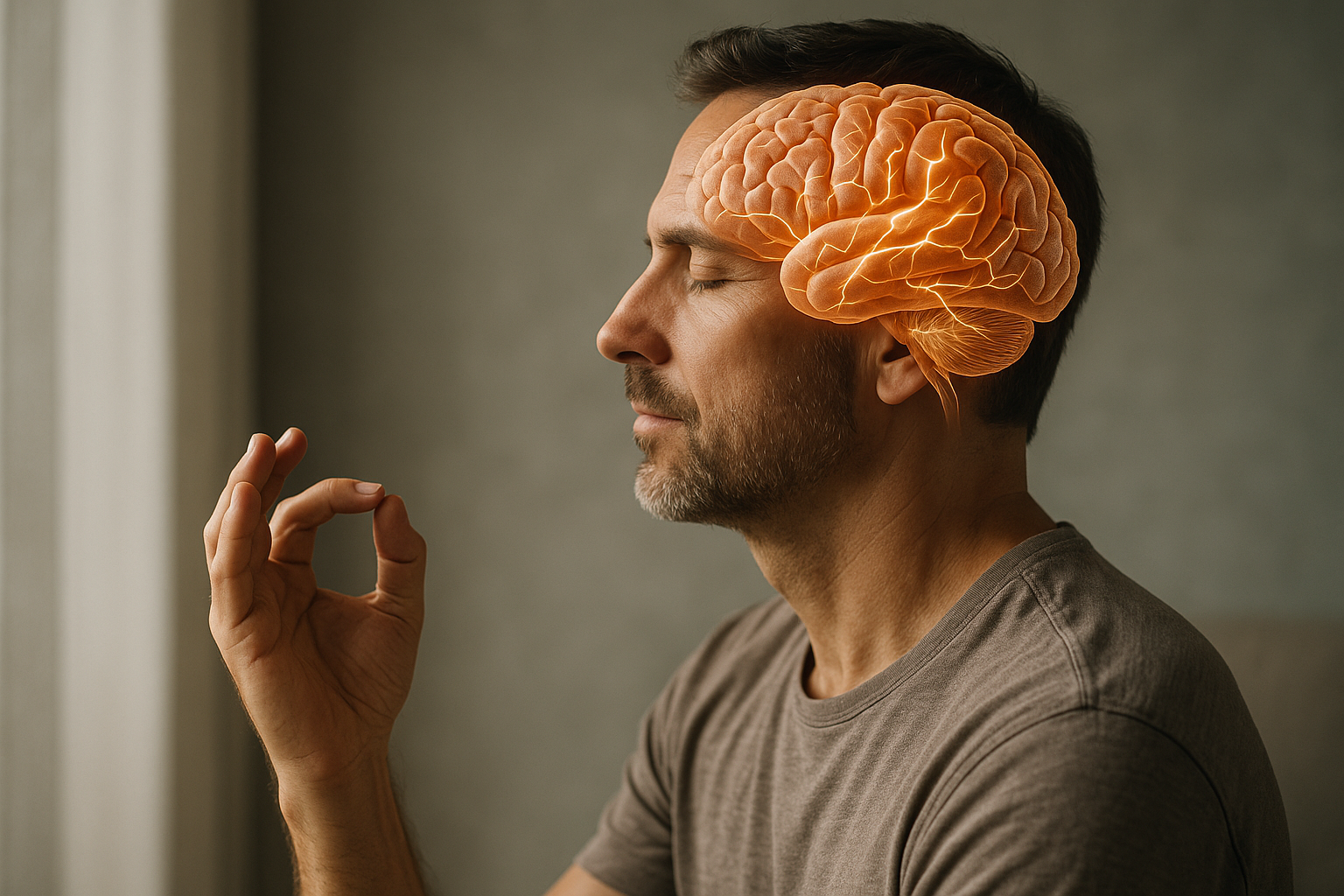This Natural Brain Drink Is Gaining Popularity Among Aussies Looking to Improve Focus, Memory, and Mental Clarity
A new plant-based drink is making waves across wellness communities for its brain-supporting benefits. With ingredients linked to better focus, enhanced memory, and mental performance, it’s quickly becoming a go-to alternative to caffeine and synthetic nootropics. Here’s how it works.

What are natural brain drinks and how do they work?
Natural brain drinks are beverages formulated with plant-based ingredients that have been scientifically studied for their potential cognitive benefits. These drinks typically contain a blend of herbs, vitamins, minerals, and other natural compounds that may support various aspects of brain function. The key to their effectiveness lies in the synergistic effects of these ingredients, which work together to potentially enhance neurotransmitter production, improve blood flow to the brain, and provide essential nutrients for optimal cognitive performance.
Which ingredients are commonly found in natural brain drinks?
Many natural brain drinks include a combination of well-researched ingredients known for their potential cognitive benefits. Some common components include:
-
Bacopa monnieri: An herb traditionally used in Ayurvedic medicine to enhance memory and reduce anxiety.
-
Lion’s Mane mushroom: Known for its potential to support nerve growth factor production and cognitive function.
-
Ginkgo biloba: An herb that may improve blood circulation to the brain and enhance memory.
-
L-theanine: An amino acid found in tea leaves that can promote relaxation without drowsiness.
-
Rhodiola rosea: An adaptogenic herb that may help combat mental fatigue and improve focus.
-
B-complex vitamins: Essential for energy production and overall brain health.
How do natural brain drinks compare to caffeine and synthetic nootropics?
Unlike caffeine-based energy drinks or synthetic nootropics, natural brain drinks offer a more balanced approach to cognitive enhancement. While caffeine provides a quick boost in alertness and focus, it can also lead to jitters, crash, and dependency. Synthetic nootropics, on the other hand, may have potential side effects and long-term safety concerns.
Natural brain drinks aim to provide sustained cognitive support without the harsh side effects associated with caffeine or synthetic compounds. They work with the body’s natural processes to potentially enhance brain function over time, rather than providing a temporary stimulant effect.
What benefits can Aussies expect from incorporating natural brain drinks into their routine?
Regular consumption of natural brain drinks may offer several potential benefits for cognitive health and performance:
-
Improved focus and concentration: Ingredients like Bacopa monnieri and Rhodiola rosea may help enhance attention span and mental clarity.
-
Enhanced memory: Compounds such as Ginkgo biloba and Lion’s Mane mushroom have been studied for their potential to support both short-term and long-term memory.
-
Reduced mental fatigue: Adaptogenic herbs and B-vitamins can help combat mental exhaustion and support overall energy levels.
-
Better stress management: L-theanine and other calming ingredients may help reduce stress and promote a sense of relaxation without sedation.
-
Long-term brain health support: Antioxidants and neuroprotective compounds found in many natural brain drinks may contribute to overall brain health and potentially reduce the risk of age-related cognitive decline.
Are there any precautions or considerations when using natural brain drinks?
While natural brain drinks are generally considered safe for most people, it’s important to keep a few things in mind:
-
Quality matters: Look for products that use high-quality, standardized ingredients and are manufactured in facilities that follow good manufacturing practices.
-
Individual responses may vary: As with any supplement, the effects of natural brain drinks can differ from person to person.
-
Allergies and interactions: Be aware of potential allergies to any ingredients and consult with a healthcare professional if you’re taking medications, as some herbs may interact with certain drugs.
-
Moderation is key: Follow the recommended serving sizes and avoid excessive consumption.
-
Not a substitute for healthy habits: Natural brain drinks should complement a balanced diet, regular exercise, and good sleep habits, not replace them.
How can Aussies choose the right natural brain drink for their needs?
When selecting a natural brain drink, consider the following factors:
-
Ingredients: Look for products with well-researched, high-quality ingredients that align with your specific cognitive goals.
-
Transparency: Choose brands that are open about their ingredient sources and manufacturing processes.
-
Third-party testing: Products that undergo independent testing for purity and potency offer an extra layer of assurance.
-
Reviews and recommendations: Consider feedback from other users and consult with healthcare professionals if needed.
-
Personal preferences: Opt for drinks with flavors and formulations that you enjoy, as consistency is key for potential benefits.
As the demand for natural cognitive enhancement solutions continues to grow, more Australians are exploring the potential benefits of plant-based brain drinks. By offering a blend of scientifically-studied ingredients without the drawbacks of caffeine or synthetic compounds, these beverages are carving out a unique niche in the wellness market. While research is ongoing, many users report positive experiences with improved focus, clarity, and overall cognitive performance. As with any supplement, it’s essential to approach natural brain drinks with realistic expectations and as part of a holistic approach to brain health and wellness.
This article is for informational purposes only and should not be considered medical advice. Please consult a qualified healthcare professional for personalized guidance and treatment.




